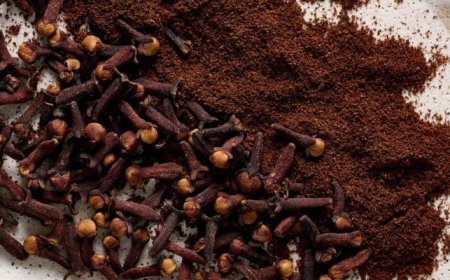How to Find Cold-Pressed Juice Bars in Columbus
How to Find Cold-Pressed Juice Bars in Columbus Cold-pressed juice has surged in popularity across the United States as consumers seek healthier, more natural alternatives to sugary beverages and processed drinks. In Columbus, Ohio — a city known for its vibrant food scene, growing wellness culture, and strong local business support — cold-pressed juice bars have become essential destinations for
How to Find Cold-Pressed Juice Bars in Columbus
Cold-pressed juice has surged in popularity across the United States as consumers seek healthier, more natural alternatives to sugary beverages and processed drinks. In Columbus, Ohio — a city known for its vibrant food scene, growing wellness culture, and strong local business support — cold-pressed juice bars have become essential destinations for health-conscious residents, fitness enthusiasts, and visitors alike. Finding the best cold-pressed juice bars in Columbus isn’t just about locating a place to buy a green drink; it’s about discovering establishments that prioritize ingredient quality, sustainable practices, nutritional transparency, and community engagement.
This guide provides a comprehensive, step-by-step approach to locating authentic, high-quality cold-pressed juice bars throughout Columbus. Whether you’re new to the city, looking to diversify your wellness routine, or simply craving a nutrient-dense beverage made with fresh, organic produce, this tutorial will equip you with the knowledge, tools, and strategies to find the top cold-pressed juice providers — and avoid misleading or low-quality options.
By the end of this guide, you’ll understand how to evaluate juice bars beyond their Instagram aesthetics, how to identify true cold-pressed operations versus those using centrifugal juicers, and how to connect with local wellness communities that champion transparency and sustainability in nutrition.
Step-by-Step Guide
Step 1: Understand What Makes Juice “Cold-Pressed”
Before you begin searching, it’s critical to understand the difference between cold-pressed juice and conventional juice. Cold-pressed juice is made using a hydraulic press that slowly crushes and squeezes fruits and vegetables without generating heat. This method preserves enzymes, vitamins, and phytonutrients that are often destroyed by the high-speed blades of centrifugal juicers, which generate friction and heat during extraction.
True cold-pressed juice bars will typically advertise “HPP-free” (High Pressure Processing-free) products, meaning their juices are not pasteurized after bottling. While HPP extends shelf life, it can reduce nutritional value. Many authentic cold-pressed juice bars in Columbus produce small batches daily and recommend consumption within 3–5 days for maximum benefit.
When evaluating a juice bar, ask: “Do you use a hydraulic press?” or “Is your juice raw and unpasteurized?” If the staff hesitates or gives vague answers, it may not be a true cold-pressed operation.
Step 2: Use Google Maps with Strategic Search Terms
Google Maps is one of the most powerful tools for discovering local businesses. To find cold-pressed juice bars in Columbus, use precise search terms rather than generic ones.
Instead of searching “juice bar Columbus,” try:
- “cold pressed juice Columbus”
- “raw juice bar near me”
- “organic cold pressed juice Columbus”
- “HPP-free juice Columbus”
- “local juice bar Columbus Ohio”
After entering your search term, sort results by “Most Relevant” and “Highest Rated.” Look for businesses with at least 4.5 stars and 50+ reviews. Pay attention to review content — phrases like “fresh ingredients,” “no additives,” “tastes like real produce,” or “they make it daily” are strong indicators of authenticity.
Also check the “Photos” section of each listing. Authentic cold-pressed juice bars often post images of their juicing equipment, fresh produce deliveries, or staff preparing juices behind the counter. Avoid places that only show branded bottles or generic smoothie bowls.
Step 3: Explore Local Wellness Directories and Blogs
Columbus has a thriving wellness ecosystem with blogs, podcasts, and online directories dedicated to healthy living. These sources often feature curated lists of trusted juice bars that go beyond paid advertising.
Start with:
- Columbus Healthy Living – A local blog that regularly features “Top 10 Cold-Pressed Juice Spots in Columbus” and interviews with juice bar owners.
- Green Columbus – A sustainability-focused site that highlights eco-conscious businesses, including juice bars using compostable packaging.
- Yelp’s “Healthy Eating” Category – Filter results by “Healthy Eating” and sort by “Top Rated.” Read reviews mentioning “cold-pressed,” “no sugar added,” or “organic produce.”
- Instagram hashtags – Search
ColumbusJuice, #ColdPressedCbus, #CbusWellness. Many small juice bars don’t have Google listings but are active on Instagram with daily updates on flavors, sourcing, and pop-up locations.
These platforms often reveal hidden gems — juice bars located inside yoga studios, co-working spaces, or farmers markets that aren’t listed on mainstream directories.
Step 4: Visit Farmers Markets and Local Events
Columbus hosts over 20 weekly farmers markets, many of which feature cold-pressed juice vendors. These markets are excellent places to sample products, meet the makers, and ask direct questions about sourcing and production.
Top markets to visit:
- North Market – Located in downtown Columbus, North Market is home to several juice vendors who press on-site daily. Look for “Juice & Co.” and “Green Press” stalls.
- Grandview Farmers Market – Features local organic farms and juice bars that use hyper-local ingredients. Many vendors offer juice tastings.
- Worthington Farmers Market – Known for its emphasis on organic, non-GMO produce. Juice bars here often partner with nearby organic farms.
- Easton Town Center Sunday Market – A more upscale market with premium cold-pressed juice brands like “Vital Press” and “Rooted Juice.”
At these markets, observe how the juice is stored — true cold-pressed juice must be refrigerated immediately after pressing. If juice is sitting out at room temperature, it’s likely not freshly made or may be pasteurized.
Step 5: Check Ingredient Transparency and Packaging
One of the most reliable ways to identify a legitimate cold-pressed juice bar is through ingredient transparency. A trustworthy establishment will list every ingredient on the bottle, including the specific type of produce (e.g., “organic kale,” “heirloom carrots,” “cold-pressed lemon juice”) and will avoid additives like citric acid, preservatives, or artificial sweeteners.
Look for:
- Short ingredient lists (ideally 5–8 items)
- Organic or locally sourced labels
- No high-fructose corn syrup, cane sugar, or flavorings
- “Made Daily” or “Best Within 3 Days” expiration dates
Also examine the packaging. True cold-pressed juice bars often use glass bottles or compostable plant-based materials. Plastic bottles, especially those with shiny metallic finishes, are often used by mass-produced, HPP-treated brands.
Ask: “Where do you source your produce?” A credible juice bar will name specific farms — for example, “We get our spinach from Windmill Farm in Delaware, OH” — rather than saying “we buy from local suppliers.”
Step 6: Engage with Local Fitness and Wellness Communities
Columbus is home to a large number of yoga studios, CrossFit boxes, Pilates studios, and holistic health centers. These communities often partner with or recommend specific juice bars.
Visit or call:
- Yoga Six – Several locations partner with local juice bars for post-class refreshments.
- CorePower Yoga – Offers juice samples and often features rotating cold-pressed vendors.
- Fit4Mom Columbus – A mom-focused fitness group that shares wellness resources, including juice bar recommendations.
- Columbus Holistic Health Fair – Held annually, this event brings together juice makers, nutritionists, and wellness coaches.
Join Facebook groups like “Columbus Wellness Warriors” or “Organic Columbus Foodies.” Members frequently post reviews, new openings, and limited-time juice flavors. These communities are often more honest and less filtered than public review sites.
Step 7: Evaluate Delivery and Subscription Options
Many Columbus cold-pressed juice bars offer delivery or weekly subscription plans. This is a great way to test consistency, taste, and reliability over time.
Look for:
- Customizable juice plans (e.g., “3-day cleanse,” “immune boost,” “post-workout recovery”)
- Flexible delivery windows and eco-friendly packaging
- Transparent pricing — no hidden fees
- Recycling or return programs for glass bottles
Popular subscription services in Columbus include “Juice & Co. Weekly,” “Rooted Juice Club,” and “Vital Press Express.” Compare their menus, ingredient sourcing, and customer feedback before committing.
Subscriptions also allow you to assess whether a juice bar maintains quality over time. A bar that changes flavors weekly based on seasonal produce is more likely to be authentic than one offering the same 5 flavors year-round.
Step 8: Visit in Person and Ask Questions
Nothing replaces a personal visit. When you walk into a juice bar, observe the environment:
- Is there visible cold-pressed juicing equipment? (Look for large hydraulic presses, not centrifugal juicers like Breville or Omega.)
- Are fruits and vegetables stored in refrigerated display cases?
- Do staff members know the origin of ingredients?
- Is the space clean and well-organized?
Ask direct questions:
- “Do you press your juice in-house every day?”
- “Is your juice pasteurized or HPP-treated?”
- “Can I see your ingredient sourcing sheet?”
- “What’s your shelf life?”
A confident, knowledgeable staff member will answer clearly and enthusiastically. If they seem unsure or deflect, it’s a red flag.
Step 9: Avoid Common Deception Tactics
Not all juice bars labeled “cold-pressed” are legitimate. Watch out for these red flags:
- Long shelf life – If a juice lasts 30+ days, it’s likely HPP-treated or pasteurized.
- Same flavors year-round – Real cold-pressed juice changes with the seasons. If “Green Detox” is always available, even in winter, it’s probably not made with fresh, local produce.
- Excessive sugar content – Even “natural” sweeteners like agave or maple syrup should be minimal. A juice with more than 10g of sugar per serving is likely not a true health product.
- Generic branding – Avoid juice bars with names like “Pure Juice” or “Green Life” that sound mass-produced. Authentic brands often have unique, locally inspired names.
- No information about production – If their website has no photos of the kitchen, no mention of equipment, and no sourcing details, proceed with caution.
Step 10: Track and Compare Your Experience
Keep a simple journal of the juice bars you try. Note:
- Flavor profile (e.g., earthy, sweet, tangy)
- Texture (smooth vs. pulpy)
- Aftertaste (bitter? metallic? clean?)
- How you felt 30 minutes and 2 hours after drinking
- Price per ounce
- Re-purchase intent
Over time, patterns will emerge. You’ll learn which bars prioritize flavor and nutrition, which are overpriced for low-quality ingredients, and which align with your personal wellness goals.
Best Practices
Practice 1: Prioritize Local and Organic Sourcing
Columbus is surrounded by fertile farmland. The best cold-pressed juice bars source ingredients from within 100 miles. Look for partnerships with certified organic farms like Windmill Farm, Rooted Acres, and Green Haven Organics. Local sourcing reduces carbon footprint and ensures peak nutritional value.
Practice 2: Support Small, Independent Businesses
Large chain juice bars often rely on centralized production and HPP to distribute nationally. In contrast, Columbus-based independents operate on a hyper-local model — pressing juice daily, using reusable containers, and reinvesting in the community. Supporting these businesses strengthens the local economy and promotes sustainability.
Practice 3: Educate Yourself on Nutrition
Not all cold-pressed juices are created equal. A juice made from 80% apple and 20% kale may taste sweet but offers little nutritional benefit. Seek bars that focus on vegetable-forward blends — ideally with a 70/30 or 80/20 veg-to-fruit ratio. Leafy greens like kale, spinach, and Swiss chard, combined with celery, cucumber, and ginger, provide the most detoxifying and anti-inflammatory benefits.
Practice 4: Avoid “Detox” Marketing Hype
There’s no scientific basis for “detoxing” with juice cleanses — your liver and kidneys handle that naturally. Be wary of juice bars that claim their products “cleanse your system” or “reset your body.” Instead, look for bars that describe their juices as “nutrient-dense,” “hydrating,” or “supportive of immune function.”
Practice 5: Use Juice as a Supplement, Not a Meal Replacement
Cold-pressed juice is not a substitute for whole foods. It lacks fiber and protein, which are essential for satiety and metabolic health. Use juice as a supplement to your diet — perhaps as a morning ritual, post-workout refresher, or afternoon pick-me-up — not as a primary source of nutrition.
Practice 6: Consider Seasonality
Seasonal produce tastes better and is more nutritious. In spring, look for juices with asparagus, radishes, and strawberries. In summer, watermelon, cucumber, and mint dominate. Fall brings beets, apples, and pears. Winter features citrus, ginger, and turmeric. Juice bars that adapt their menus seasonally are more likely to be authentic.
Practice 7: Bring Your Own Container
Many Columbus juice bars offer discounts for bringing your own glass bottle. This reduces waste and supports zero-waste initiatives. Ask if they have a bottle return program — some even offer free juice after you return 10 empty bottles.
Practice 8: Read Labels Like a Nutritionist
Check the nutrition panel for:
- Calories per serving (should be 80–150 for a 12oz bottle)
- Sugar grams (ideally under 12g)
- Protein and fiber (usually 0g — that’s normal)
- Added sodium (should be 0mg)
Any juice with added sodium, preservatives, or “natural flavors” should raise suspicion.
Practice 9: Support Ethical and Sustainable Brands
Look for juice bars that:
- Use compostable or recyclable packaging
- Donate excess produce to food banks
- Partner with local environmental nonprofits
- Pay fair wages and support diversity in hiring
These practices reflect a deeper commitment to wellness — not just for you, but for the planet and community.
Practice 10: Be Patient and Consistent
Finding your perfect cold-pressed juice bar may take time. Don’t settle for the first one you find. Try at least five different bars over a few weeks. Your palate and preferences will evolve. What tastes “too earthy” today might become your favorite next month.
Tools and Resources
Tool 1: Google Maps (Advanced Search Filters)
Use Google Maps’ “Open Now,” “Delivery,” and “Takeout” filters to find juice bars that match your lifestyle. Save your favorite locations to a custom list called “Columbus Cold-Pressed Juice.”
Tool 2: Yelp Pro (Free Version)
Yelp’s free tier allows you to filter by “Healthy Eating,” “Organic,” and “Vegetarian.” Sort by “Top Reviewers” to find credible feedback. Use the “Ask a Question” feature to inquire about ingredients directly.
Tool 3: Instagram and TikTok Hashtags
Search these hashtags for real-time updates:
ColumbusJuice
ColdPressedCbus
CbusWellness
OhioJuiceBar
FreshPressedColumbus
Follow local influencers like @CbusWellnessGuide or @TheGreenColumbus for weekly recommendations.
Tool 4: Local Food Co-ops and CSA Programs
Join a Community Supported Agriculture (CSA) program in Columbus. Many include juice bar discounts or partner with local juice makers. Examples include Good Food Collective and Green Acres CSA.
Tool 5: Columbus Metropolitan Library Events
The library hosts free wellness workshops, including “Nutrition 101” and “Local Food Systems.” Attendees often receive curated lists of trusted juice bars and nutritionists.
Tool 6: The Columbus Foodie App
A local app dedicated to independent restaurants and food vendors. It features user reviews, seasonal menus, and maps of juice bars with delivery zones. Download it from the App Store or Google Play.
Tool 7: Facebook Groups
Join:
- Columbus Healthy Living
- Organic Food Lovers Columbus
- Plant-Based Columbus
Members frequently post about new juice bars, pop-ups, and exclusive discounts.
Tool 8: Nutrition Data Websites
Use MyFitnessPal or Chronometer to scan nutrition labels from juice bottles. Compare nutrient density across brands to identify the most beneficial options.
Tool 9: Local Farmers Market Directories
Visit columbus.gov/farmersmarkets for a complete list of weekly markets and vendor rosters. Filter for “juice” or “beverage” vendors.
Tool 10: The Juice Bar Evaluation Checklist
Create your own printable checklist with these criteria:
- ☐ Uses hydraulic press (not centrifugal)
- ☐ Ingredients listed on bottle
- ☐ No preservatives or additives
- ☐ Shelf life ≤ 5 days
- ☐ Glass or compostable packaging
- ☐ Staff can name produce sources
- ☐ Menu changes seasonally
- ☐ No HPP mentioned
- ☐ Supports local farms
Use this checklist every time you try a new juice bar.
Real Examples
Example 1: Vital Press – Downtown Columbus
Located inside the historic LeVeque Tower, Vital Press is a staple in Columbus’s cold-pressed scene. They use a Norwalk hydraulic press and press juice twice daily. Their “Green Warrior” blend includes kale, cucumber, celery, parsley, lemon, and ginger — no fruit. All produce is sourced from Ohio farms within 75 miles. They offer glass bottle returns for $1 credit per bottle. Their Instagram (@vitalpresscbus) shows behind-the-scenes footage of daily prep. Customers report sustained energy and improved digestion after consistent use.
Example 2: Rooted Juice – Clintonville
Rooted Juice operates out of a converted 1920s bungalow in Clintonville. Their menu rotates weekly based on what’s harvested. In April, they featured a “Spring Awakening” juice with ramps, dandelion greens, and wild garlic. They partner with a local organic beekeeper for raw honey (used sparingly). Their packaging is 100% compostable, and they donate 5% of profits to urban gardening initiatives. Their owner, Maya Rivera, hosts monthly “Juice & Soil” talks on sustainable agriculture.
Example 3: Green Press at North Market
A daily fixture at North Market, Green Press offers 12 rotating flavors. Their “Beet It” juice includes red beet, apple, carrot, orange, and turmeric — a vibrant, earthy blend with only 8g of natural sugar. They don’t use HPP. Their juice is sold in glass bottles with handwritten labels. They’ve been featured in Columbus Monthly for their commitment to zero-waste practices. Many regulars bring their own jars to refill.
Example 4: The Juice Bar at Yoga Six – Upper Arlington
Though part of a regional chain, this location stands out. They source exclusively from Ohio organic farms and press juice on-site every morning. Their “Calm & Clear” blend includes mint, cucumber, lemon, and spirulina — a rare inclusion of algae for detox support. They offer a 10% discount for yoga students. The staff are trained in nutrition basics and can explain the benefits of each ingredient.
Example 5: Juice & Co. – Pop-Up at the High Street Farmers Market
Founded by two former chefs, Juice & Co. doesn’t have a storefront. They operate as a pop-up every Saturday at the High Street Farmers Market. Their “Golden Glow” juice features turmeric, black pepper, orange, pineapple, and ginger — a potent anti-inflammatory blend. They use reusable stainless steel containers and charge a $2 deposit. Their flavors sell out by noon. Follow them on Instagram (@juiceandco.cbus) for weekly locations.
FAQs
Is cold-pressed juice really better than regular juice?
Yes — when made properly. Cold-pressed juice retains more enzymes, vitamins, and antioxidants because it’s made without heat or high-speed blades. Regular juice from grocery stores is often pasteurized and may contain added sugars or preservatives. Cold-pressed juice is meant to be consumed fresh and raw.
How long does cold-pressed juice last in Columbus?
True cold-pressed juice lasts 3–5 days when refrigerated. If a juice claims to last 21+ days, it’s likely been HPP-treated or pasteurized. Always check the “best by” date and consume within the window.
Are all juice bars in Columbus using cold-pressed methods?
No. Many use centrifugal juicers, which are faster and cheaper but destroy nutrients. Always ask: “Do you use a hydraulic press?” If they don’t know what that is, they’re likely not making cold-pressed juice.
Can I make cold-pressed juice at home?
Yes — but it requires an investment. A quality hydraulic press costs $1,000–$3,000. For most people, supporting local juice bars is more practical and sustainable. However, if you’re committed, brands like Omega and Tribest offer home models.
Why is cold-pressed juice so expensive?
Cold-pressed juice is labor-intensive and requires large quantities of fresh produce. It takes 2–3 pounds of vegetables to make one 12oz bottle. When you pay $8–$12 for a bottle, you’re paying for organic ingredients, skilled labor, and sustainable packaging — not just the liquid.
Do any Columbus juice bars offer delivery?
Yes. Vital Press, Rooted Juice, and Juice & Co. offer delivery within 10 miles of their locations. Some use electric bikes or reusable coolers to reduce emissions.
Are there vegan or gluten-free options?
All true cold-pressed juice is naturally vegan and gluten-free. However, always check for added ingredients like honey (not vegan) or cross-contamination if you have severe allergies.
What’s the best time to drink cold-pressed juice?
Many prefer it in the morning on an empty stomach for maximum absorption. Others drink it before or after workouts for hydration and nutrient replenishment. Avoid drinking it with meals — it digests quickly and can interfere with protein or fat absorption.
Can I juice every day?
Yes — but balance it with whole foods. Juicing removes fiber, so ensure you’re eating vegetables, legumes, nuts, and whole grains throughout the day. Think of juice as a nutrient boost, not a replacement.
How do I know if a juice bar is ethical?
Look for transparency: Do they name their farms? Do they use compostable packaging? Do they pay fair wages? Do they donate to local causes? Ethical juice bars are proud of their values — not just their product.
Conclusion
Finding the best cold-pressed juice bars in Columbus is more than a search for a refreshing drink — it’s a journey into mindful consumption, community support, and personal wellness. By applying the steps outlined in this guide — from strategic online searches to in-person evaluations — you can distinguish between authentic, nutrient-rich juice bars and those that merely use the term “cold-pressed” as a marketing tactic.
The Columbus wellness scene is thriving, and the city’s cold-pressed juice providers are at its heart. They’re not just selling beverages; they’re promoting sustainability, local agriculture, and holistic health. Whether you’re drawn to the earthy depth of a beet-ginger blend or the crisp clarity of a cucumber-mint tonic, the right juice bar is out there — waiting for you to ask the right questions, show up with curiosity, and support businesses that align with your values.
Start today. Visit one farmers market. Try one new juice bar. Ask one question. Your body — and your community — will thank you.


































